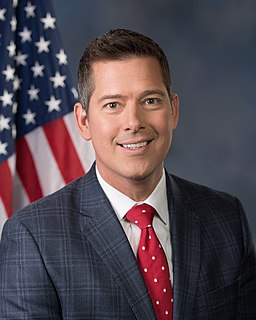A Quote by Sherrod Brown
Democrats are ready, willing, and able to provide regulatory relief for community banks and credit unions.
Related Quotes
For small community banks and credit unions, like those in Central and Northern Wisconsin, the hundreds of new rules will require an estimated 2,260,631 labor hours just for compliance. Those are hours that your local bank or credit union will spend dealing with some Washington bureaucrat instead of focusing on the needs of customers like you.
The financial collapse of 2008 got its start with predatory mortgages, that weren’t sold by community banks and credit unions, they were sold by fly by night mortgage brokers who had almost zero federal oversight and then the big banks looked over, saw the profit potential and they wanted it bad. So they jumped in and sold millions of these terrible mortgages while the bank regulators just looked the other way.
Under Bill Clinton's HUD Secretary Andrew Cuomo, Community Reinvestment Act regulators gave banks higher ratings for home loans made in 'credit-deprived' areas. Banks were effectively rewarded for throwing out sound underwriting standards and writing loans to those who were at high risk of defaulting.
Instability mostly comes from the interface between the fact that the banks (or shadow banks) can create credit, money, and purchasing power in infinite quantities if we don't constrain them, and the fact that credit is primarily created to fund the purchase of urban real estate and land, which is somewhat fixed in supply.
I passionately disagreed with Treasury Secretary Hank Paulson's plan to bail out the banks by using a public fund called the Troubled Asset Relief Program (TARP) to help banks take toxic assets off their balance sheets. I argued that it would be much better to put the money where the hole was and replenish the equity of the banks themselves.
































